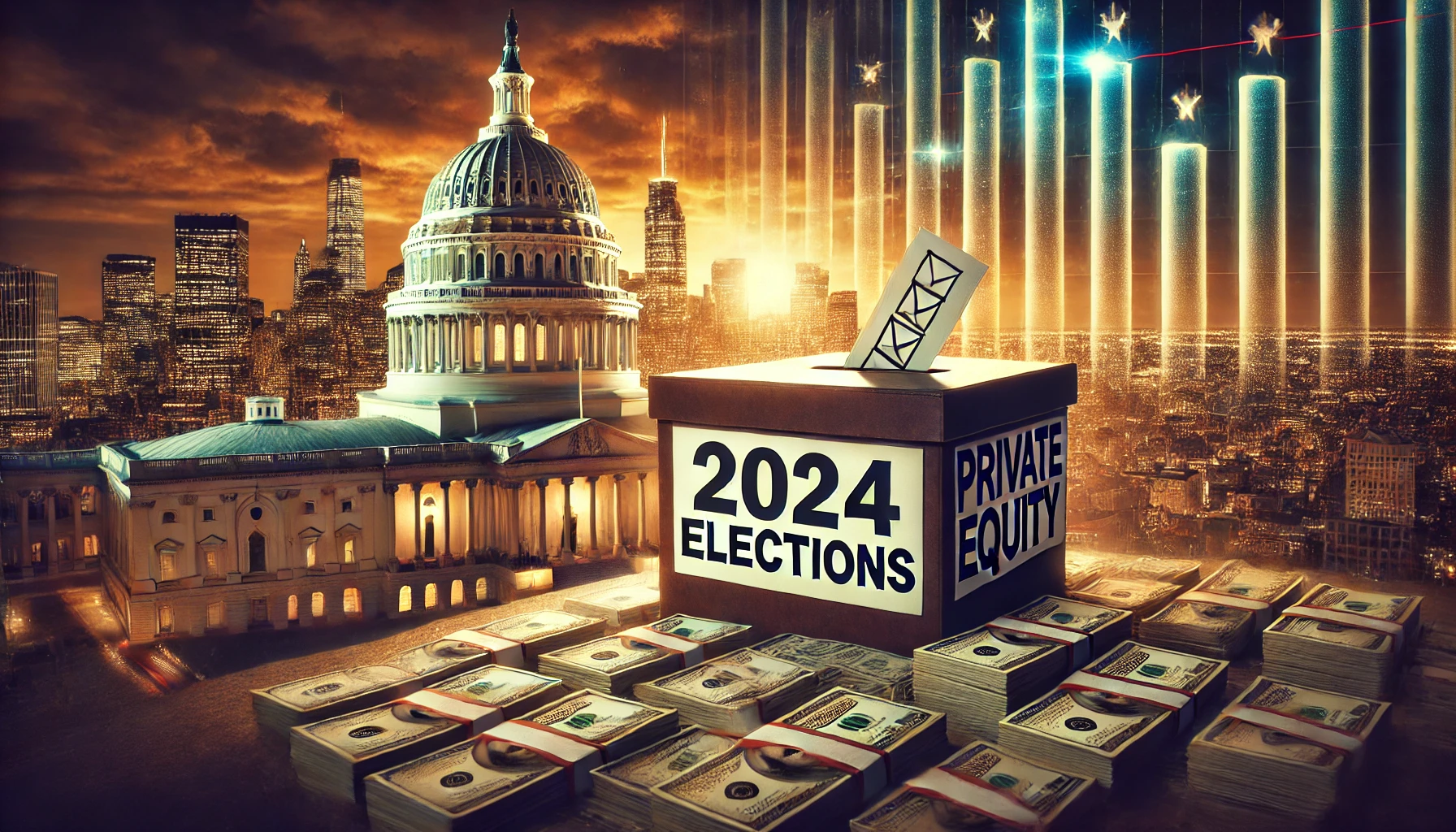The private equity sector is ramping up its political spending ahead of the 2024 elections, with contributions already surpassing $231 million by mid-October. This surge in political donations signals an intensified effort to shape policies that could have long-term implications for the industry and the broader financial markets.
The Rising Influence of Private Equity in Politics
Private equity firms have historically leveraged political contributions to advocate for regulatory and tax policies favorable to their business models. According to data from the Center for Responsive Politics, the industry set a record in 2020 with over $250 million in political donations. With the 2024 election cycle in full swing, private equity players appear poised to match or exceed that figure, reinforcing their growing influence in Washington.
Prominent firms such as Blackstone, KKR, and Apollo Global Management have reportedly made substantial contributions to both major political parties, with a strategic focus on candidates and committees that shape financial regulations and corporate tax policies. This bipartisan approach ensures that private equity interests remain well-represented regardless of the election outcome.
Why This Matters for Investors
The increased political spending by the private equity industry suggests that firms anticipate potential policy shifts that could impact their operations and investment strategies. Several key areas are under scrutiny:
- Taxation of Carried Interest: The longstanding debate over the tax treatment of carried interest—profits earned by fund managers—remains a focal point. Some policymakers advocate treating these earnings as ordinary income rather than capital gains, which could significantly raise tax burdens for private equity firms.
- Regulatory Oversight: The Securities and Exchange Commission (SEC) has proposed stricter disclosure and reporting requirements for private equity funds. Enhanced transparency measures could influence deal structuring, compliance costs, and overall profitability.
- Antitrust and Mergers: Increased regulatory scrutiny on mergers and acquisitions may affect the ability of private equity firms to execute leveraged buyouts and exit strategies efficiently.
Future Trends to Watch
As the election nears, investors should closely monitor campaign rhetoric and legislative proposals that could impact private equity firms. Key indicators to watch include:
- The stance of presidential candidates on financial regulation and corporate taxation.
- Legislative efforts to modify capital gains tax rates and carried interest provisions.
- Potential shifts in antitrust policies that could affect deal-making strategies.
Market analysts suggest that uncertainty surrounding regulatory changes could lead to increased volatility in private equity valuations and transaction activity in the coming months.
Investment Insight
For investors, the private equity sector remains an attractive asset class, given its history of delivering strong returns. However, the evolving regulatory landscape necessitates a cautious approach. Investors should consider:
- Diversifying across asset classes to mitigate exposure to potential policy-driven disruptions.
- Monitoring public filings and regulatory announcements to stay informed on changes affecting private equity investments.
- Assessing portfolio exposure to firms with high political spending, as these companies may be more sensitive to legislative changes.
The private equity industry’s record-setting political contributions underscore its determination to shape policies that could define its future trajectory. As Washington debates financial regulations, tax policies, and corporate governance, investors must remain vigilant and adapt their strategies accordingly. Staying informed on political developments will be crucial for navigating the evolving investment landscape.
For more in-depth analysis and daily investor insights, stay tuned to MoneyNews.Today.





